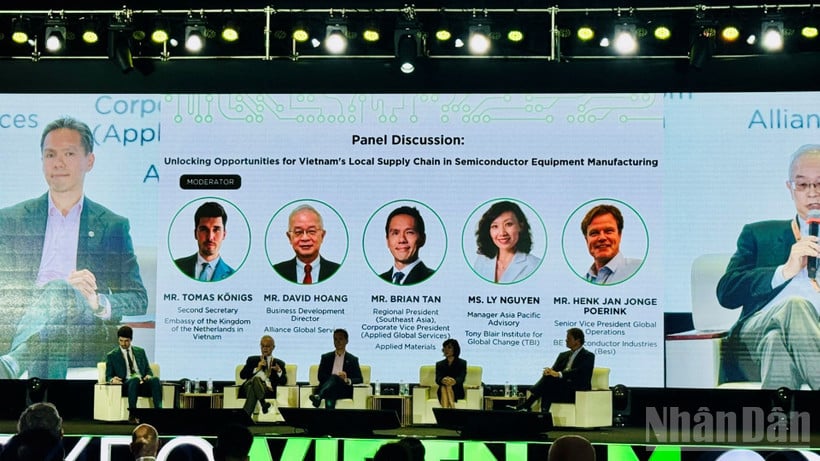
Accordingly, at the Forum "Opportunities for Vietnam's supply chain to participate in semiconductor equipment production" on the afternoon of November 7, experts and speakers emphasized the emergence of the Vietnamese semiconductor market in the global value chain as well as the urgent need to train high-quality semiconductor human resources.
The forum is part of the Vietnam Semiconductor Industry Exhibition 2025 (SEMIExpo Vietnam 2025) co-organized by the National Innovation Center ( Ministry of Finance ) and the Semiconductor Industry Association (SEMI).
Also at the forum, discussions between experts clarified the factors that global purchasing enterprises look for in Vietnamese suppliers, identified capacity gaps that need to be narrowed, and proposed practical cooperation solutions to improve competitiveness and the ability to participate more deeply in the global value chain.
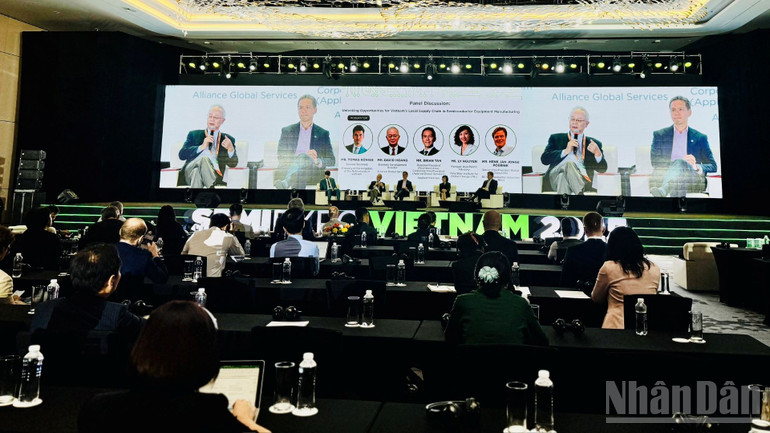
The rise of Vietnam's semiconductor market
Emphasizing the opportunity for Vietnam's supply chain to participate in global semiconductor equipment production, Mr. Brian Tan, President of Southeast Asia, Vice President of Applied Global Services, Applied Materials Group, said: Supply self-reliance is an issue we have talked about a lot, especially after Covid-19. In that context, up to now, self-reliance is the prerequisite. According to Mr. Brian Tan, we must also emphasize the sustainability factor. Particularly for Vietnamese suppliers, we need to pay more attention to intellectual property and security issues.
Sharing the view that Vietnamese enterprises need to pay attention to intellectual property issues, Ms. Ly Nguyen, Asia -Pacific Consulting Manager, Tony Blair Institute for Global Change (TBI) shared that Vietnam has many advantages in developing the semiconductor industry, but along with great potential comes no small challenge. There are still many gaps that need to be narrowed for Vietnam to participate deeply in the global semiconductor supply chain.
According to Ms. Ly Nguyen, along with the policy mechanisms for developing the semiconductor industry, Vietnam needs to clarify the roles of the parties involved in this process - institutes, schools, and businesses, and set goals to achieve. Notably, Vietnam also needs to have national technical standards in line with international standards.
Ms. Ly Nguyen also emphasized that if Vietnam wants to shape the country on the semiconductor map, it must pay attention to investing in research and development, and most importantly, investing in talent development - this must be promoted in different ministries and localities. She also emphasized the role of the Government, directly the Ministry of Education and Training, in effectively implementing the Semiconductor Human Resource Training Strategy that Vietnam has just issued.
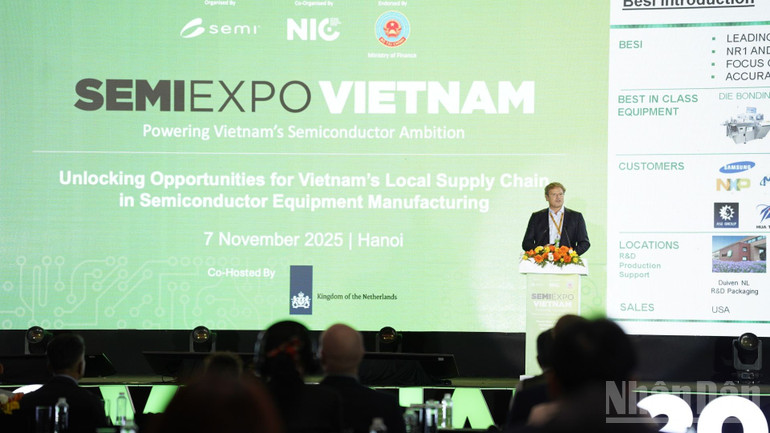
“The first thing is to identify the niche market and find the right talent pool, the right human resources to improve skills and precision in workmanship. And you have to find the right partners both domestically and internationally,” Ms. Ly Nguyen emphasized.
In fact, Vietnam is a country with strategic partnerships with many semiconductor powers. This is an opportunity for Vietnam to participate more deeply in the supply chain of the global semiconductor industry.
Furthermore, in the current context of the global supply chain shifting to Southeast Asia, Vietnam has become a new focal point of the global supply chain, with advantages in production capacity, quality human resources, stable investment environment and fast integration speed.
During the discussion session “Unlocking opportunities for Vietnam’s domestic supply chain in the semiconductor manufacturing sector” moderated by Mr. Tomas Konigs, Second Secretary, Embassy of the Kingdom of the Netherlands in Vietnam, speakers who are senior leaders from international corporations shared their purchasing strategies, analyzed cooperation opportunities and clarified the requirements that the domestic supply chain needs to meet to comply with the strict standards and high technical requirements of the industry.

Many corporations have chosen Vietnam as a strategic move.
The speakers also fully agreed with the opinion that many corporations have chosen Vietnam as a strategic step in the journey to expand their sourcing network (a system of suppliers, manufacturers, logistics partners and buyers) in the Southeast Asia region. And Vietnam is emerging as a dynamic production and export center in the region thanks to its stable business environment, quality workforce and flexible adaptability.
On this occasion, Mr. Henk Jan Jonge Poerink, Senior Vice President, Head of Global Operations, Besi Group, commented that the trend of diversifying supply chains is opening up great opportunities for Vietnamese suppliers with advantages in cost, production capacity and quality. At the same time, he recommended that Vietnamese enterprises need to comply with international standards, control quality and understand buyers' needs to improve cooperation capabilities.
Analyzing from the perspective of buyers, the speakers also shared experiences in helping Vietnamese businesses become sustainable partners, including improving operational capacity, flexibility in cooperation, professionalism in communication and quality management.
Accordingly, international buyers increasingly prioritize businesses that are responsive, transparent and trustworthy in the process. "Therefore, more than ever, you, Vietnamese businesses, must demonstrate your strengths and uniqueness, and prove that you have transformed from a manufacturing plant to a reliable global supplier," recommended Mr. David Hoang, Business Development Director, Alliance Global Services.
The discussions at the session shed light on the factors that global buyers look for in Vietnamese suppliers, identified capacity gaps that need to be narrowed, and proposed practical cooperation solutions to enhance competitiveness and the ability to participate more deeply in the value chain.
The forum has opened up opportunities for direct connection between senior leaders and strategic planners, creating a platform with great influence for Vietnamese enterprises to learn, connect and affirm their position in a rapidly changing industry. This is especially important content for parties wishing to accompany Vietnam's next development step in the field of high-tech manufacturing.
Source: https://nhandan.vn/dieu-quan-trong-van-la-dao-tao-nguon-nhan-luc-ban-dan-chat-luong-cao-post921560.html










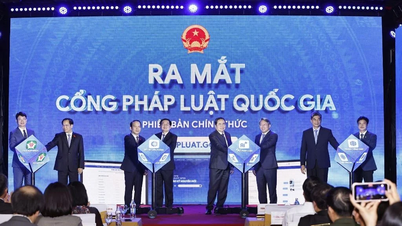

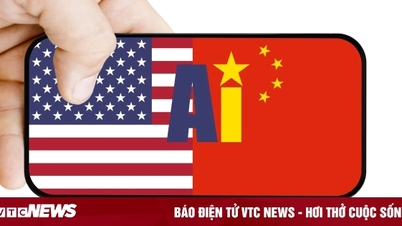












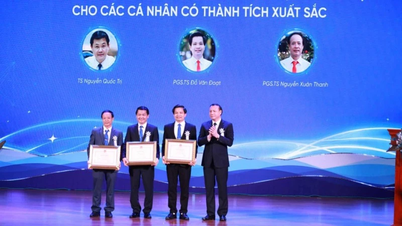
![[Photo] "Ship graveyard" on Xuan Dai Bay](https://vphoto.vietnam.vn/thumb/1200x675/vietnam/resource/IMAGE/2025/11/08/1762577162805_ndo_br_tb5-jpg.webp)



![[Video] Hue Monuments reopen to welcome visitors](https://vphoto.vietnam.vn/thumb/402x226/vietnam/resource/IMAGE/2025/11/05/1762301089171_dung01-05-43-09still013-jpg.webp)
































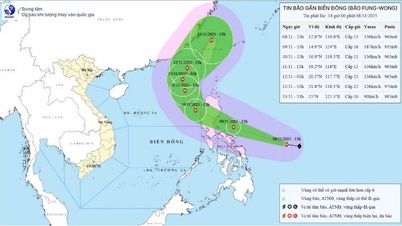















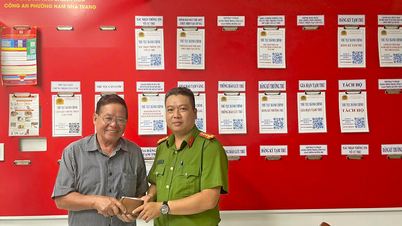

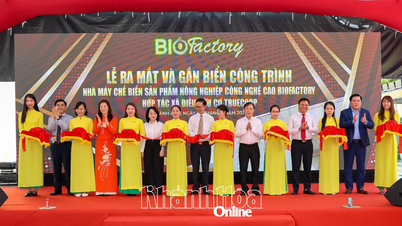
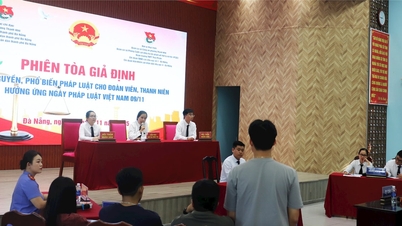

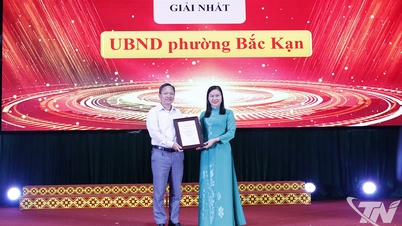

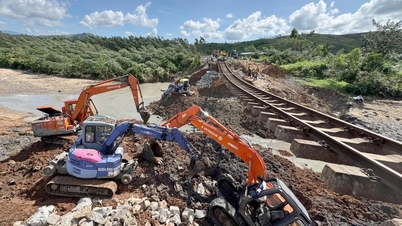

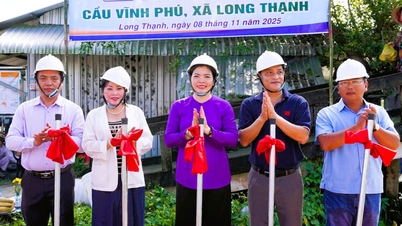














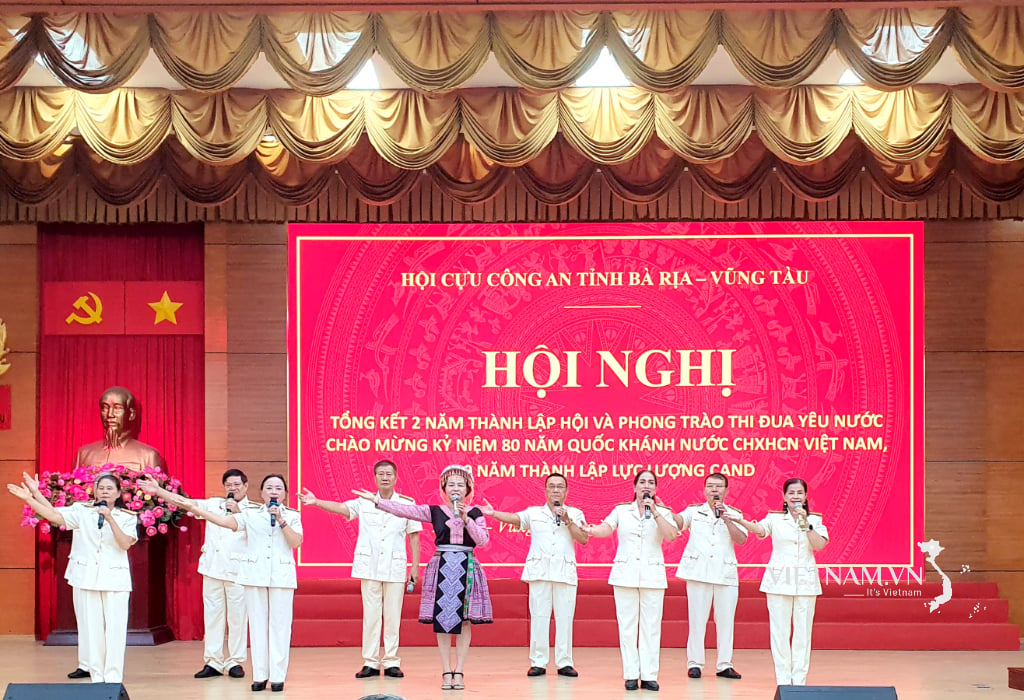

Comment (0)